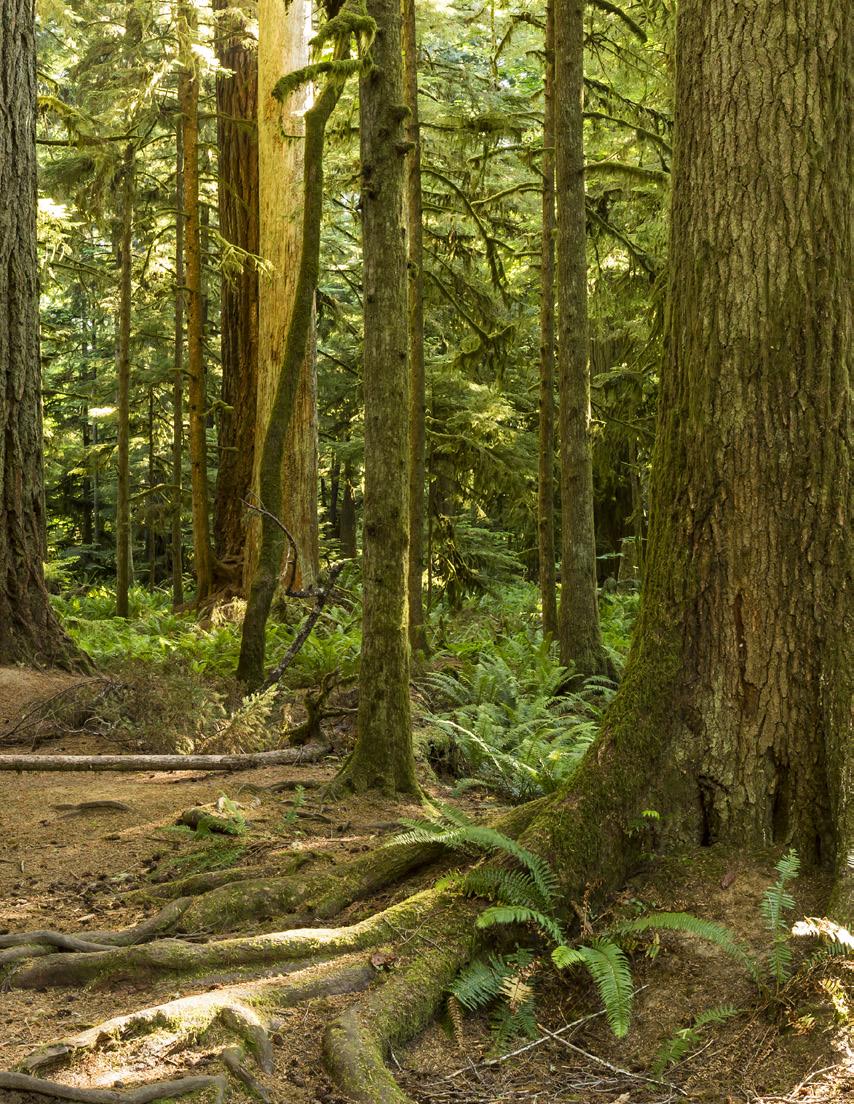
2 minute read
Growing the forestry leaders of tomorrow
Upcoming challenges in the forestry profession will require insights and leadership from students moving through postsecondary education today. In recognition of this, and through the support of a private grant-making foundation, UBC Forestry established the Future Forests Fellowship (FFF) in 2013. Amounting to $280,000 over four years, FFF is one of the largest awards of its kind, and will once more be directed to an incoming doctoral student in forestry in 2023.
“This fellowship recognizes young scholars from around the world who are on track to become future leaders in forestry,” says UBC Forestry Dean and Prof. Rob Kozak . “Through their forward-thinking graduate studies, they are advancing the profession by taking a critical lens to some of the most pressing environmental challenges facing our planet, and proposing innovative solutions and interdisciplinary collaborations to realize sustainable change.”
Advertisement
The fellowship was first awarded to Sara Barron in 2013 for her research on how urban forests can be designed to be climate-ready, support local ecosystem services and improve the health and well-being of local residents. Today, Sara is the program director for both UBC Forestry’s undergraduate and graduate urban forestry programs.
“Without FFF, I would not have had the means to pursue a PhD,” says Sara. “The award changed my life; and, I look forward to spending my career paying this forward to our forestry students.”
PhD candidate
Sarah DicksonHoyle received the fellowship in 2018 for her research into collaborative wildfire management and community led restoration. In partnership with the Secwepemcúl’ecw Restoration and Stewardship Society (SRSS) and its member Secwépemc communities, she aims to identify solutions to improve collaboration between First Nations and the BC government across all stages of wildfire management, including recovery. To-date the fellowship has supported Sarah in conducting research on the Elephant Hill wildfire in collaboration with the SRSS, as well as completing field work in partnership with St’uxwtéws (Bonaparte First Nation) that involved monitoring the recovery of culturally significant plants following Elephant Hill.
“Ethical and impactful community-based research requires substantial investments of time and resources,” says Sarah. “My research would not have been possible without the FFF.”
“As BC faces ongoing impacts from climate change, there is a need to transform current approaches to forest management and for First Nations to lead this process.”
Applications for the 2023
Future Forests Fellowship are now open. The deadline for completed applications is
November 25, 2022 at 4 p.m. PST.
Find out more at: forestry.ubc.ca/ future-forests-fellowship
Made possible by a private Canadian foundation, FFF was created to underscore how forestry research impacts current and emerging global ecological issues. Recipients demonstrate exceptional leadership skills and have planned studies that fall within one or more of UBC Forestry’s areas of research excellence, with a focus on BC:
• bioenergy, climate change, urban forestry, conservation, forested landscapes, salmon ecology
• forest: management, genomics, products biotechnology and health
• forests & Indigenous peoples, forests & human health










